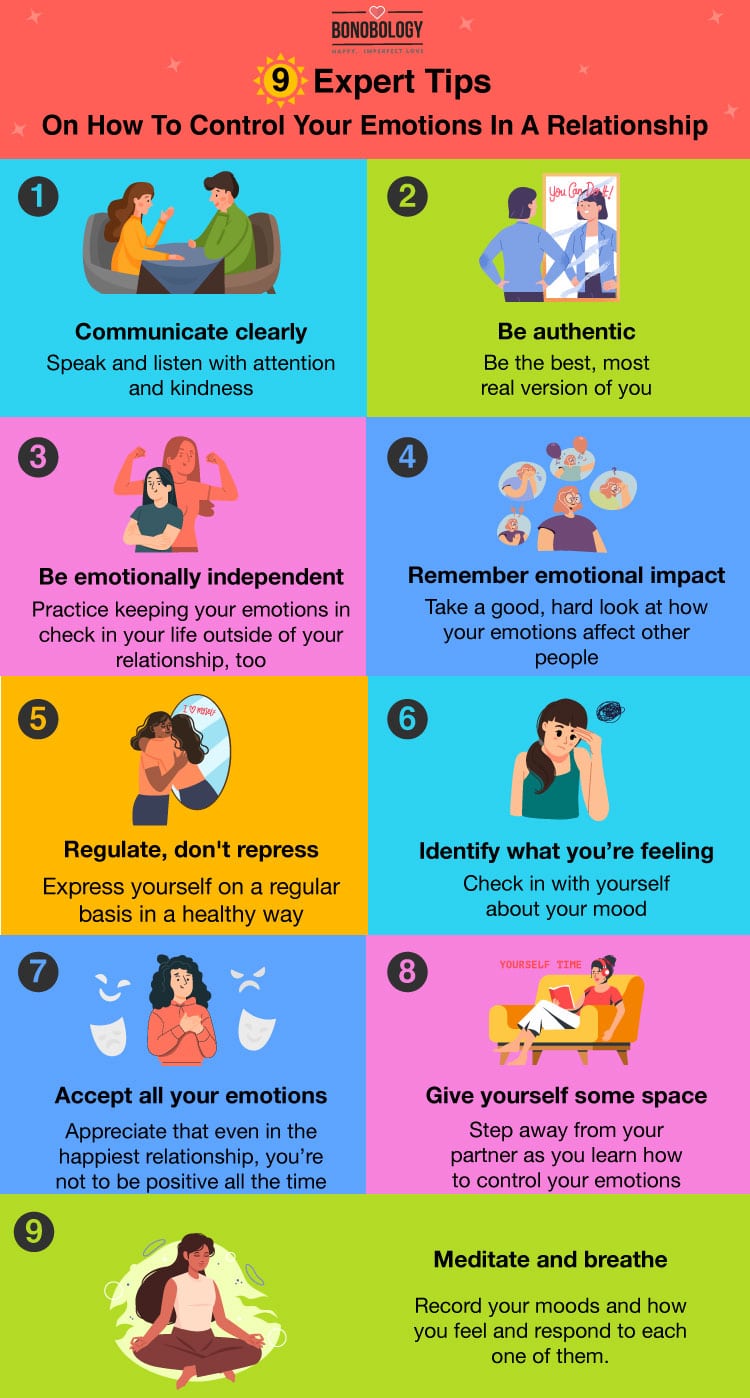How To Keep Your Emotions Under Control

Navigating the complexities of daily life often involves contending with a barrage of emotions. Whether it's the frustration of a delayed commute or the anxiety of an impending deadline, effectively managing these feelings is crucial for maintaining well-being and fostering healthy relationships.
This article explores practical strategies and techniques for keeping emotions under control, drawing on insights from psychological research and expert advice. Understanding and implementing these methods can empower individuals to respond thoughtfully rather than react impulsively in challenging situations.
Understanding Your Emotional Landscape
The first step in managing emotions is developing self-awareness. This involves recognizing and identifying the specific emotions you are experiencing as they arise.
Pay attention to the physical sensations that accompany different emotions, such as a racing heart during anxiety or a clenched jaw during anger. Journaling can be a helpful tool for tracking emotional patterns and identifying triggers.
Techniques for Emotional Regulation
Several evidence-based techniques can aid in regulating emotions. One effective approach is cognitive reappraisal, which involves reframing your perspective on a situation.
For example, instead of viewing a job loss as a personal failure, consider it an opportunity for new career exploration. Deep breathing exercises and mindfulness meditation can also help to calm the nervous system and reduce the intensity of emotional reactions.
According to the American Psychological Association, mindfulness techniques can reduce stress and improve overall emotional regulation.
The Role of Lifestyle Factors
Your lifestyle plays a significant role in your emotional well-being. Prioritizing sleep, nutrition, and exercise can have a profound impact on your ability to manage emotions effectively.
Chronic sleep deprivation can impair emotional regulation and increase impulsivity. A balanced diet supports brain function and helps stabilize mood, while regular exercise releases endorphins, which have mood-boosting effects.
Dr. Anna Reynolds, a leading psychologist specializing in emotional intelligence, emphasizes the importance of maintaining a healthy lifestyle as a foundation for emotional stability.
Building Resilience Through Social Support
Strong social connections can provide a buffer against stress and promote emotional resilience. Cultivating supportive relationships with family, friends, or colleagues can offer a sense of belonging and provide opportunities to process difficult emotions.
Talking to a trusted confidant about your feelings can help you gain perspective and develop coping strategies. Support groups can also be valuable resources for individuals facing similar challenges, offering a sense of community and shared understanding.
Remember, seeking professional help from a therapist or counselor is a sign of strength, not weakness. Therapy can provide a safe and supportive space to explore underlying emotional issues and develop effective coping mechanisms.
Practical Application in Daily Life
Integrating these techniques into your daily routine can gradually improve your ability to manage emotions. Start by practicing one or two strategies and gradually incorporating more as you become comfortable.
For instance, try taking a few deep breaths before responding to a stressful email or practicing mindfulness meditation for a few minutes each day. Consistency is key to developing lasting emotional regulation skills.
By consistently applying these strategies, individuals can cultivate greater emotional resilience, improve their relationships, and enhance their overall well-being. Mastering your emotions is a journey, not a destination, and requires ongoing effort and self-compassion.
Ultimately, learning to manage your emotions empowers you to navigate life's challenges with greater grace and equanimity.


















